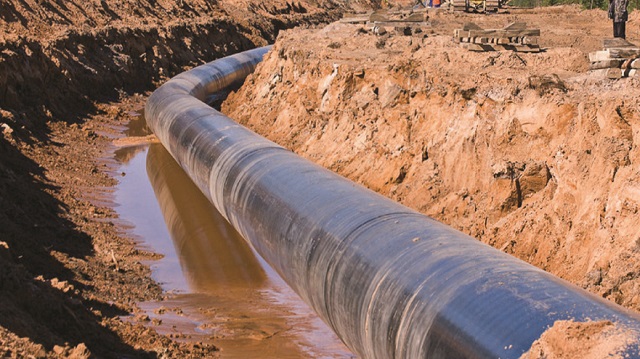
A short reply to Mwenda and Co.
COMMENT | Prof. Dr. Eng. KANT ATEENYI KANYARUSOKE | In one recent NBS program, President Yoweri Museveni talked about many things: health, economy, succession etc. On oil, which was only a small part of the interview, he gave his opinion on the refinery-pipeline issue vis-a-vis the oil companies. The reference to oil companies as ‘cheats’ even when the negotiated revenue share from crude oil is ‘high’ at 78%, together with some imagined possibility that oil will soon be useless, seem to have driven Mwenda to castigate the president’s outlook as ‘bad oil policy’ in his The Independent weekly column of 18 May 2020. Perhaps many African elites would agree with Mwenda – but I don’t, and will in this article share why I don’t.
For starters, in The new Vision I have in the past written on the constituents of drilled crude oil and how, in refineries, they are separated into different products and byproducts for feed into other chemical factories. Also, in one issue of the London-based Africa Business Magazine, I castigated the common African practice of siphoning our crude oil deposits to outsiders when our people have to queue for fuel. What should now be added in the castigation is our foreign dependence on sourcing of other oil-based products like lubricants, industrial coolants, light and heavy plastics, tar, pharmaceuticals, beauty products, other organics, etc. This is not to mention the denuding of the continent in search for wood-based fuel even as the foreign oil companies flair oil rig gases during the drilling operation. In the current submission, I want to address the 78% revenue hologram and the fallacy that crude oil deposits will soon be useless – and that we should therefore be stampeded into ‘donating’ them to the companies.
The Hologram – Uganda’s ‘super’ benefits at 78% crude oil revenue share are illusionary because of many reasons. First, the %age figure itself means nothing until one looks at actual values. With current proven extractable deposits of 1.5 billion barrels at the most, and a price of say 60 US$ each, extraction at 200 000 barrels a day gives a national gross annual revenue of just about US$ 3.4 Billion for the next 20 years. The partner companies get just below US$ 1 Billion on the 73 Million barrels annually shipped. If we take away the 12 US$ per barrel for piping to Tanga (to donate the oil), the country remains with either a mere 2.5 or 2.7 Billion US$ annually – depending on how pipeline costs are shared out with the companies. Considering capital, operation and maintenance costs of the 1445 km underground heated pipeline which cannot be used for anything else, I leave it to the reader to see whether the president is not right that we could earn the 2.5 or 2.7 Billion much easier and more profitably if similar efforts were put in other areas. Then, why is it that other African countries with less share agreements seem to be comfortable? Simple – either they have a coastline and even drill offshore (Ghana, Angola, Nigeria, Libya, Gabon, Equatorial Guinea etc.) with no absolute need for a long pipeline, or their volumes are much larger, or they are simply suffering silently, especially after being stuck with agreements made when crude oil prices were higher.
The 78 percentage figure creates a hologram which hides the real exploitative nature of the companies. Like I said in previous articles, the transport energy fractions – gasoline, diesel and kerosine – which our African elites focus on, form hardly 50-60% of what the continent gives these companies. For Uganda’s waxy crude, the figure is certainly lower. Most of the remainder – which we don’t bother about, is the source of raw materials for useful waxes and the very high value non energy products I mentioned earlier, often made by other chemical companies in the oil majors’ refinery countries. Even when the oil companies attempt to increase the transport energy components by chemically breaking apart complex molecules and/or hydrogenating them, extra jobs and revenues are created in their home countries from fractions our elites never focus on.
 The Independent Uganda: You get the Truth we Pay the Price
The Independent Uganda: You get the Truth we Pay the Price


